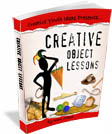
To this day, one of my favorite cartoons is the Warner Bros “Road Runner” series. Some days I feel like the Road Runner and some days I feel like the Coyote.
Wile E. Coyote (Carnivorous Vulgaris) is based upon a description of a coyote in Mark Twain’s book “Roughing It” which refers to a coyote as being starved and hungry enough to chase a roadrunner.
Road Runner (Accelleratii Incredibus), based upon a bird from the American Southwest, is too fast to catch and too skinny to make a decent meal. He seems completely oblivious to his danger and always escapes the clever Coyote’s carefully orchestrated plans.
According to Chuck Jones, the cartoon’s creator, in “Chuck Amuck: The Life and Times of An Animated Cartoonist,” they adhered to some simple but strict rules with the cartoon:
- The Road Runner cannot harm the Coyote except by going “Beep-Beep!”
- No outside force can harm the Coyote – only his own ineptitude or the failure of Acme products.
- The Coyote could stop anytime – if he were not a fanatic.
- No dialogue ever, except “Beep-Beep!”
- The Road Runner must stay on the road.
- All action must be confined to the southwest American desert.
- All materials, tools, weapons, or mechanical conveniences must be obtained from the Acme Corporation.
- Whenever possible, make gravity the Coyote’s greatest enemy.
- The Coyote is always more humiliated than harmed by his failures.
- The audience’s sympathy must remain with the Coyote.
The coyote, with knife and fork in hand, becomes so single-minded, so fixated on his pursuit of Road Runner that his whole existence is defined by it. To make matters worse, he has an exaggerated belief in his own ingenuity and in the scientific methods and instruments of the ACME Corporation. He’s forever coming up with increasingly elaborate and seemingly foolproof schemes in his ceaseless pursuit of the Road Runner.
Amusingly, Murphy’s Law, “Anything that can go wrong, will go wrong, and at the worst possible moment” seems to intervene on every occasion as each attempt to capture the Road Runner fails, by some inherent flaw that Wile E. Coyote never anticipates. All his attempts end in disaster. Yet, nothing happens to Wile E. that he does not bring upon himself. The Road Runner merely responds to coyote’s doomed schemes with his characteristic “Beep-Beep”.
Sadly, if Wile E Coyote ever did catch the Road Runner, it is doubtful that the puny little bird would satisfy his hunger.
Like the Coyote?
Our lives become defined by our pursuits. But many of those pursuits are more difficult to grasp than the Road Runner. We come up with elaborate schemes to satisfy the hungers in life only to be left empty and frustrated by our failures. Too often we like to blame these failures and other misadventures in life on the devil. But like those of Wile E Coyote, most of them are self-initiated. While Coyote’s failures usually do little more than humiliate him, the disastrous consequences of a fall in real life do more than damage our ego. In fact they can cause great harm not only to ourselves, but also to others around us. And even when we do manage to take hold of that which we have been pursuing, the end result is often less than satisfying.
Are there things in life that you fanatically pursue with the reckless abandon of a half-crazed coyote to your detriment? (family, careers, money, power, popularity, etc)
Instead of chasing after the Road Runners in life, let them run off into the sunset and chase after God instead. As the apostle Paul said “I press on to take hold of that for which Christ Jesus took hold of me. Brothers, I do not consider myself yet to have taken hold of it. But one thing I do: Forgetting what is behind and straining toward what is ahead, I press on toward the goal to win the prize for which God has called me heavenward in Christ Jesus.” (Philippians 3:12-14) “Seek first his kingdom and his righteousness, and all these things will be given to you as well” (Matthew 6:33) When we pursue God, he will satisfy the hungers we have in life like no Road Runner ever will. Better yet, he wants to be caught!
 MORE IDEAS? See “Creative Object Lessons”
MORE IDEAS? See “Creative Object Lessons”
200 page e-book that explains everything you need to know when planning your very own object lessons. It contains 90 fully developed object lesson ideas and another 200 object lesson starter ideas based on Biblical idioms and Names / Descriptions of God.






